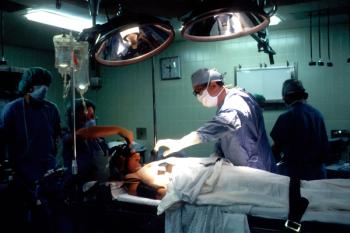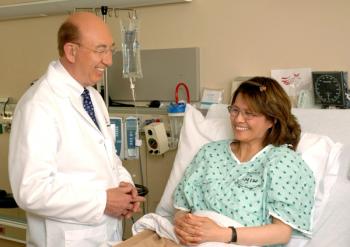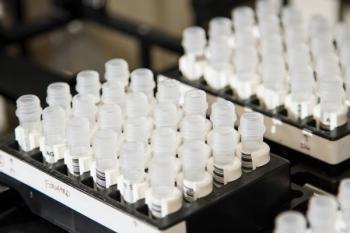
Although many women with breast cancer report being satisfied with their decision to forgo reconstruction after a mastectomy, some indicate a lack of support from their surgeon as well as limited information on their options.

Although many women with breast cancer report being satisfied with their decision to forgo reconstruction after a mastectomy, some indicate a lack of support from their surgeon as well as limited information on their options.

Many patients with cancer experience challenges with sexual intimacy. Body image, self-esteem, vaginal health and a positive mindset all come into play.

There’s a tremendous amount of interest in immunotherapy drugs given alongside targeted therapies for patients with pancreatic cancer, according to an expert.

Side effects from early-onset menopause from medical treatments may be mitigated with hormone replacement therapy.

Three experts discuss an intervention strategy to improve the lack of communication between minority women and their cancer care teams.

Different breast implant options and potential complications may make the reconstruction process difficult to understand, but one expert discusses the importance of knowing what you want and hopefully avoiding postsurgical issues.

In this short video, hear from some of the men of FORCE who have been diagnosed with, or are at high risk for, breast and other cancers.

Treatments for bladder, colorectal and prostate cancer may cause sexual dysfunction in men. Here, an expert provides insight into how patients and survivors may improve their sexual health.

While sparking a conversation about cancer risk after a family diagnosis is hard, one expert said that there are benefits — especially when using specific tactics.

Drugs like PARP inhibitors, immunotherapy and antibody-drug conjugates are making a great impact on the treatment of patients with several subtypes of breast cancer.

One of the more prevalent misconceptions about inherited cancer mutations is that genetic testing is only for White people, according to a genetic counselor.

Whether it be physical, psychosocial or financial, the lasting effects of cancer and its treatment can be overwhelming. One expert explains how a personalized survivorship care plan can tackle it altogether.

Lifestyle factors like diet and exercise can play a major role in cancer outcomes. In this article, a clinical dietitian offers advice on healthy eating before and after a cancer diagnosis.

One oncologist highlighted the knowledge base of the immunotherapy and targeted therapy and how they interact with cancer cells.

A successful cancer treatment process includes more than just surgery, chemotherapy and other treatments: it involves keeping up your wellness from both a physical and mental standpoint, an expert says.

Clinical trials are key in driving treatment advancements for patients with cancer – especially those with genetic mutations – and should not be looked at as a last resort.

There are certain laws that may protect the medical information of people with genetic predispositions to cancer from their employers and possible health insurers.

Maintenance therapy is meant to prevent relapse after a patient with ovarian cancer received their main treatment. Here’s an overview of what patients should know.

If you have an inherited mutation linked to cancer and/or cancer in your family and you have ever been a caregiver for a relative with cancer, FORCE would like to hear from you.

In the largest study of people with inherited PALB2 mutations to date, the gene was linked to increased lifetime risk of breast cancer in women and men, ovarian and pancreatic cancer but not prostate or colorectal cancer.

Men can inherit and pass on gene mutations too.

Brad Hertz is a BRCA2 previvor who enrolled himself in a clinical trial for prostate cancer.

Read the story of Susan Feinberg, a three time cancer survivor.

Jodi Becker Kinner shares her story in this short video.

Join the 12th Annual Joining FORCEs Against Hereditary Cancer Conference on September 29-30, 2021.

We will use the results of the survey to improve our current programs and create new resources to meet unmet needs.

A three-time cancer survivor discusses the importance of genetic testing, listening to your body and teaching family members about your experiences to potentially protect them from future cancers.

From an oncologist forgiving the medical debt of 200 of his patients to “Saved by the Bell” Star Dustin Diamond being diagnosed with stage 4 cancer, here’s what’s happening in the cancer landscape this week.

Portfolio now includes BRCA, ATM, PALB2, CHEK2, PTEN and other inherited gene mutations, as well as those diagnosed with Lynch syndrome.

New guidance from the Food and Drug Administration recommends that the makers of breast implants include a black-box warning, a patient decision checklist and other information on product labels that will help protect them against a cancer and an autoimmune condition that can arise from use of the devices.